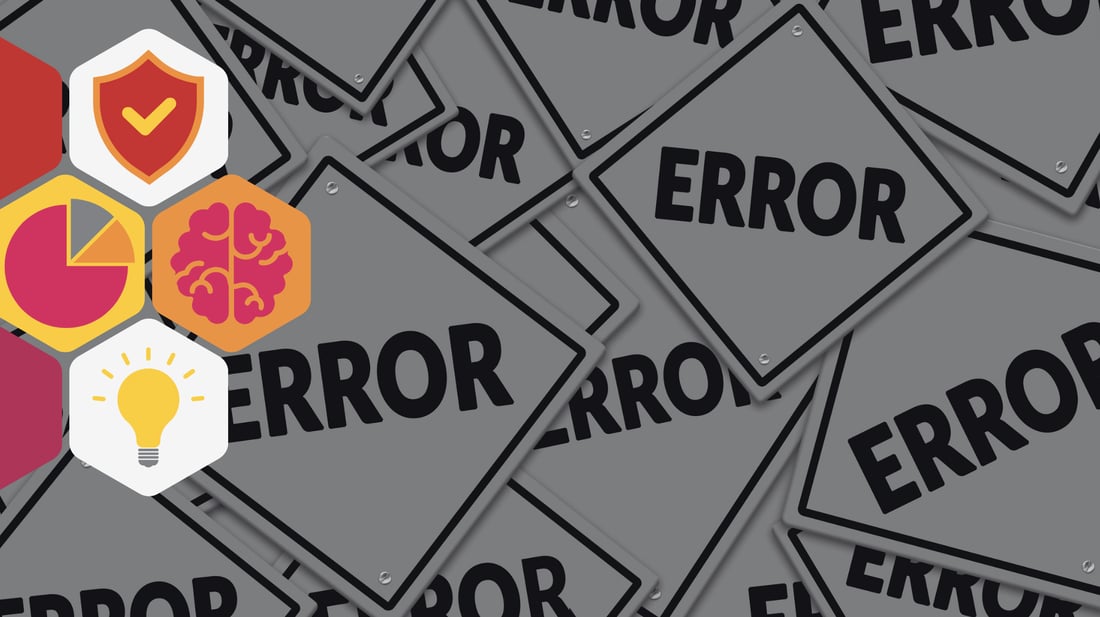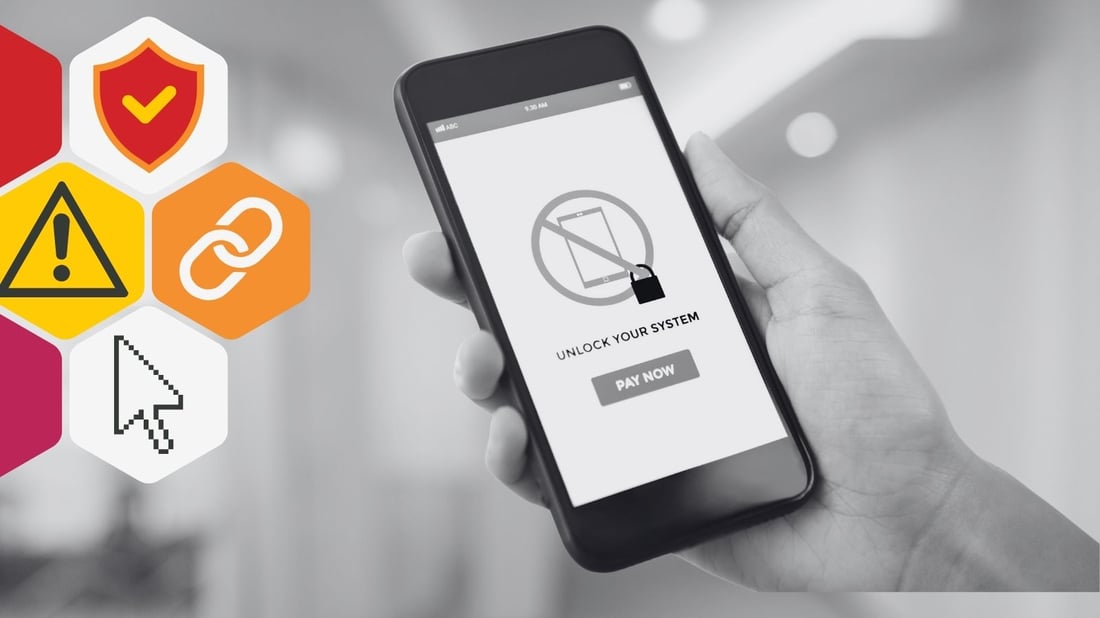Understanding Data Breaches: Navigating the Threat Landscape
In the dynamic realm of cybersecurity, the term "data breach" echoes the potential for causing harm, chaos, and compromise. It's more than just a...
When it comes to phishing, these deceptive tactics are like a game of cat and mouse, with attackers constantly refining their methods to outsmart even the most vigilant of defenses.
From multinational corporations to small startups, no entity is immune to the disruptive force of phishing attacks. They strike indiscriminately, causing upheaval and chaos as they exploit vulnerabilities and sow seeds of distrust. By understanding the intricacies of phishing tactics and arming ourselves with knowledge, we can turn the tide against these nefarious schemes.
Explore their far-reaching consequences, and discover proactive strategies to safeguard against their insidious threats.
Phishing attacks target the financial resources of most organizations by employing deceptive tactics like credential theft and fraudulent invoicing, leading to staggering financial losses. According to a report by the FBI's Internet Crime Complaint Center (IC3), these attacks amassed a colossal $10.3 billion in losses for organizations in 2023 alone.
The fallout from phishing and ransomware attacks extends to tarnishing an organization's reputation. Once breached, attackers exploit compromised systems to disseminate malicious emails, eroding customer, client, and partner trust. The negative impact of cyberattacks communicated swiftly via media channels, can haunt an organization's image for years, and leave a permanent mark on the impact it will leave.
Following a data breach event, many consumers exhibit a lack of trust, with a substantial portion opting to disengage from a brand. Examples like GoAnywhere's 2023 breach, affecting 3 million (!) users, highlight the immediate and enduring financial repercussions of customer attrition due to a cyber security breach.
Phishing attacks aren't merely disruptive but can critically disrupt an organization's day-to-day, essential business processes and operations. Malware or ransomware installations post-breach can lead to system outages, causing significant productivity losses and impairing service accessibility for customers.
Beyond direct repercussions for an organization and employees, breaches impact an organization's valuation, affecting investor confidence and share prices. Facebook and British Airways experienced substantial valuation drops after their respective data breaches, signaling a clear correlation between breaches and diminished organizational value.
Regulators are increasingly stringent regarding data mishandling. Breached organizations face substantial fines, exemplified by hefty penalties imposed on companies like British Airways and Equifax, underscoring the strict consequences of data insecurity.
Cybercriminals gaining access to personal information can wreak havoc on an individual's or organization's financial stability and reputation. The misappropriation of personal data can lead to fraudulent activities, unauthorized access and purchases of services, and credit score damage, creating a prolonged and distressing ordeal for the victim.
The aftermath of a phishing attack can inflict significant emotional turmoil. It's more than just a mere headache; it's a profound violation of personal privacy and trust that can leave individuals grappling with a whirlwind of emotions. From the initial shock and disbelief to the lingering anxiety and stress, the impact can be profound and long-lasting. Victims often find themselves on an emotional rollercoaster, struggling to regain a sense of security and trust in their communication systems and online interactions.
The emotional toll of a phishing attack cannot be understated. It's not just about the inconvenience or financial loss; it's about feeling violated and vulnerable in a space that should be safe. The psychological impact can be profound, leading to feelings of isolation, helplessness, and even shame. Victims may find it challenging to confide in others about their experience, fearing judgment or criticism for falling victim to such a scheme.
Moreover, the effects can extend beyond the individual to impact their relationships and overall mental well-being. The stress and anxiety from the attack can spill over into other areas of life, affecting work performance, personal relationships, and even physical health. It's a ripple effect that can have far-reaching consequences if not addressed promptly and effectively.
In light of these challenges, it's essential to prioritize mental health and well-being in the aftermath of a phishing attack. Seeking support from trusted friends, family members, or mental health professionals can provide much-needed comfort and guidance during this difficult time. Additionally, practicing self-care strategies such as mindfulness, relaxation techniques, and healthy coping mechanisms can help individuals navigate the emotional fallout and reclaim a sense of control over their lives.
Apart from the emotional toll, grappling with the aftermath of a phishing attack can significantly impact an individual's professional life and financial gain. Dealing with the fallout of compromised accounts or stolen information requires considerable time and effort. This diversion of focus can lead to decreased productivity, absenteeism, and a heightened sense of unease about the risks and threats to the security of personal and work-related data.
Recovering from the aftermath of a phishing attack is not a quick process. It involves meticulous steps to secure compromised accounts, rectify financial damages, and restore a sense of security. Victims often face protracted battles with financial institutions, credit agencies, and online service providers to rectify fraudulent activities, which can be an exhaustive ordeal.
Phishing attacks are not just a problem for organizations; they pose a significant threat to individuals as well. The ripple effects of these cyber threats can be felt far and wide, causing financial loss, emotional distress, and a loss of trust in digital communication systems. As we navigate the ever-changing landscape of cybercrime, it's crucial to recognize the multifaceted consequences of phishing attacks and take proactive steps to protect ourselves and our communities.
In the face of evolving threats, organizations must adopt a multi-layered approach to cybersecurity. This includes implementing technological barriers, such as robust firewalls and intrusion detection systems, as well as multi-factor authentication strategies to add an extra layer of protection. Organizations can find vulnerabilities and fix them before cybercriminals take advantage of them by regularly conducting risk assessments and implementing risk management practices.
However, technology alone is not enough to combat phishing attacks. Equally important is proactive user education. By providing individuals with the knowledge and tools to identify phishing attempts, organizations can empower their employees to become the first line of defense against cyber threats. This includes educating users about common phishing tactics, teaching them how to spot suspicious emails and websites, and encouraging them to report any suspected phishing attempts promptly.

In the dynamic realm of cybersecurity, the term "data breach" echoes the potential for causing harm, chaos, and compromise. It's more than just a...
7 min read

Key Considerations for CISO’s in the wake of the CRSB’s Report on the MSFT Breach As we all know, the need for cybersecurity is still on the rise,...
8 min read

In recent years, ransomware and cyber attacks have escalated in both frequency and magnitude, sending shockwaves through the business world.
6 min read
Subscribe to our newsletters for the latest news and insights.
Stay updated with best practices to enhance your workforce.
Get the latest on strategic risk for Executives and Managers.
